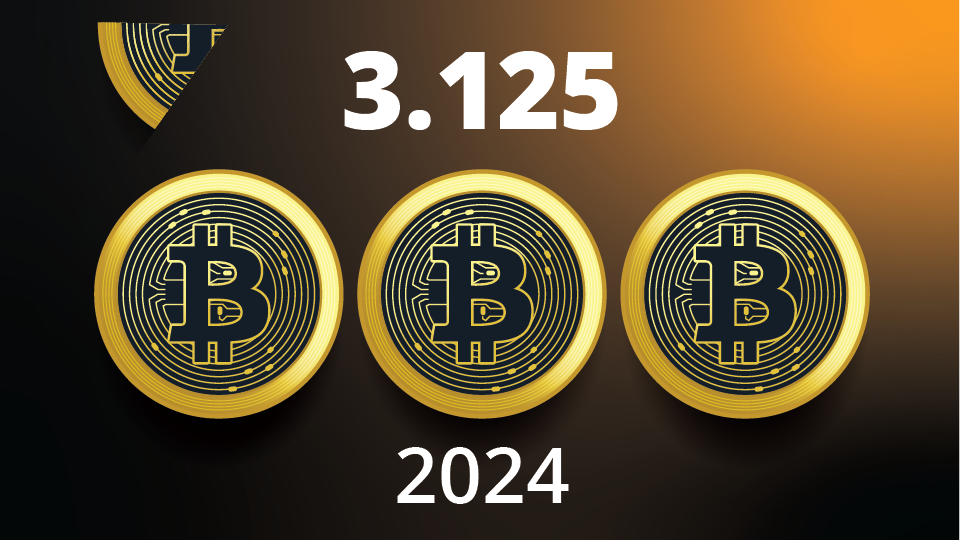Crypto Categories: Defining DeFi
December 22, 2021
Read Time 4 MIN
In Sorting Out the Crypto World, we identified the need for a classification system for crypto coins and introduced the categorization scheme developed by MarketVector Indexes (MVIS), a VanEck subsidiary. This crypto categorization series will offer a closer look at several of these digital assets categories: smart contract platforms, media and entertainment (metaverse), DeFi and infrastructure applications. Here we explore DeFi.
Understanding DeFi
Decentralized finance (DeFi) protocols are software programs that run on top of another cryptocurrency and that use a combination of that other protocol's asset (as well as their own and maybe others) as a means to automate a financial service. DeFi protocols connect lenders and borrowers, buyers and sellers, without requiring a centralized institution. In aggregate, DeFi protocols comprise an overlapping ecosystem of decentralized applications and smart contracts that mostly operate on Ethereum, the largest open-source blockchain smart contract platform. More specifically, the DeFi protocols can be divided into several sub-categories that further refine their use case:
- Decentralized exchanges, or DEXs (Uniswap, 0x): Allows users to exchange crypto assets peer-to-peer. DEXs provide access to trading pairs even when the volume of the underlying asset may be too small to warrant attention from larger exchanges. Transactions can occur either via a decentralized order book or by matching orders and setting prices algorithmically.
- Lending/borrowing platforms (Compound, Aave): Involves the creation of time-limited interest-bearing instruments, which must be repaid at maturity, and the matching of lending and borrowers to issue those instruments.
- Derivatives (Synthetix): Users can trade real world assets such as stocks, FX and commodities in the form of crypto-denominated tokens; or, in the case of prediction markets, manufacture "shares" representing a portion of the value of outcomes such as elections, sports or market events.
- Asset management (Mirror, Numeraire): Allows users to create and maximize the value of an asset portfolio based on risk references, time horizons, diversification or other conditions.
- Insurance (Nexus): Provides protection against risks by trading the payment of a premium for the possibility of collecting a payout in the event of a covered scenario.
- Aggregators (Yearn.Finance): protocols that offer diversified products and services.
- Asset-backed reserves (Olumpus Dao): protocols that aim to provide protocol-owned liquidity through a mix of rebases, bonding mechanisms, and the accumulation of other stablecoins or digital assets.
Importantly, most DeFi apps don't demand personal information to register. Anyone can use DeFi products by visiting an application's website and connecting via a MetaMask wallet or similar protocol. Thus, while DeFi is a fast-growing area, it remains immature, with a variety of unresolved economic, technical, operational, and public policy issues that are important to address.
How DeFi Compares to Traditional Finance
| Traditional Finance | DeFi | |
| Custody of Assets | Held by regulated service provider or custodian. | Held directly by users in non-custodial wallet or via smart contract-based escrow. |
| Units of Account | Fiat. | Denominated in digital assets or stablecoins. |
| Execution | Intermediaries process transactions between parties. | Via smart contracts operating on the users' assets. |
| Clearing & Settlement | Processed by service providers or clearinghouses, typically after a period of time. | Writing transactions to the underlying blockchain completes the settlement process. |
| Governance | Specified by the rules of the service provider, marketplace, regulator and/or self-regulatory organization. | Managed by protocol developers or determined by users holding tokens granting voting rights. |
| Auditability | Authorized third-party audits of proprietary code or potential for open-source code that is publicly verified. | Open-source code and public ledger allow auditors to verify protocols and activity. |
| Collateral Requirements | Transactions may involve no collateral, or collateral less than or equal to the funds provided. | Overcollateralization generally required, due to digital asset volatility and absence of credit scoring. |
Source: UPenn "DeFi Beyond the Hype" May 2021; VanEck.
Valuing DeFi projects
DeFi protocols, similar to smart contract platforms, generally earn money by collecting transaction fees. The fees are distributed to token holders in the form of payouts or through "burns"1 that reduce the supply of tokens. Payouts generate a direct return to market participants, while burning tokens increases each users' relative share of the network similar to a share buyback. By comparing the market cap of the DeFi protocol with the fees earned by the protocol, investors can observe an effective "price to sales" and "price to earnings" ratios for these projects.
That said, different DeFi tokens have different earnings models that make this PE exercise more complicated. For example, revenue is split between interest payments from borrowers and trading fees from traders, the latter which may be more relevant to protocol sustainability. Still, in aggregate, the constituents of the MVIS CryptoCompare Decentralized Finance Leaders Index are producing total revenue at an annual rate of $4.9B2 vs their combined market cap of $29B, putting the universe on ~6x price-to-sales, a steep discount to smart contract platforms (~20x), which reflects uncertainty around the barriers to entry and the regulatory environment.
MVIS DeFi Leaders Index as of 11/23/2021
| Annualized total revenues (last 30 days) |
Price-to-sales | |
| Uniswap | $2.6B | 8.21x |
| Aave | $638M | 5.9x |
| Maker | $104M | 25x |
| Curve DAO | $135M | 14x |
| Compound Governance Token | $415M | 7x |
| yearn.finance | $313M | 3.7x |
| Sushi | $571M | 2.85x |
| Perpetual | $27M | 32x |
| Synthetix | $18M | 83x |
| Serum* | $67M | 11x |
Source: TokenTerminal, VanEck calculations, as of 11/23/2021. *Serum data based on last one week fees annualized as of 11/16/21.
DeFi Leaders Total Value Locked by Protocol
Source: DefiLlama, as of 12/10/21. UNI: Uniswap; CRV: Curve DAO; AAVE: Aave; MKR: Maker; COMP: Compound Governance Token; YFI: yearn.finance; SUSHI: Sushi; PERP: Perpetual; SNX: Synthetix; SRM: Serum.
To receive more Digital Assets insights, sign up in our subscription center.
Related Topics
Related Insights
DISCLOSURES
Important Information Regarding Cryptocurrencies.
The information herein represents the opinion of the author(s), an employee of the advisor, but not necessarily those of VanEck. The cryptocurrencies discussed in this material may not be appropriate for all investors. The appropriateness of a particular investment or strategy will depend on an investor’s individual circumstances and objectives.
This material has been prepared for informational purposes only and is not an offer to buy or sell or a solicitation of any offer to buy or sell any cryptocurrencies, or to participate in any trading strategy.
Certain statements contained herein may constitute projections, forecasts and other forward looking statements, which do not reflect actual results, are valid as of the date of this communication and subject to change without notice. Information provided by third party sources are believed to be reliable and have not been independently verified for accuracy or completeness and cannot be guaranteed. VanEck does not guarantee the accuracy of third party data. References to specific securities and their issuers or sectors are for illustrative purposes only.
Cryptocurrency is a digital representation of value that functions as a medium of exchange, a unit of account, or a store of value, but it does not have legal tender status. Cryptocurrencies are sometimes exchanged for U.S. dollars or other currencies around the world, but they are not generally backed or supported by any government or central bank. Their value is completely derived by market forces of supply and demand, and they are more volatile than traditional currencies. The value of cryptocurrency may be derived from the continued willingness of market participants to exchange fiat currency for cryptocurrency, which may result in the potential for permanent and total loss of value of a particular cryptocurrency should the market for that cryptocurrency disappear. Cryptocurrencies are not covered by either FDIC or SIPC insurance. Legislative and regulatory changes or actions at the state, federal, or international level may adversely affect the use, transfer, exchange, and value of cryptocurrency.
Investing in cryptocurrencies, such as Bitcoin, comes with a number of risks, including volatile market price swings or flash crashes, market manipulation, and cybersecurity risks. In addition, cryptocurrency markets and exchanges are not regulated with the same controls or customer protections available in equity, option, futures, or foreign exchange investing. There is no assurance that a person who accepts a cryptocurrency as payment today will continue to do so in the future.
Investors should conduct extensive research into the legitimacy of each individual cryptocurrency, including its platform, before investing. The features, functions, characteristics, operation, use and other properties of the specific cryptocurrency may be complex, technical, or difficult to understand or evaluate. The cryptocurrency may be vulnerable to attacks on the security, integrity or operation, including attacks using computing power sufficient to overwhelm the normal operation of the cryptocurrency’s blockchain or other underlying technology. Some cryptocurrency transactions will be deemed to be made when recorded on a public ledger, which is not necessarily the date or time that a transaction may have been initiated.
- Investors must have the financial ability, sophistication and willingness to bear the risks of an investment and a potential total loss of their entire investment in cryptocurrency.
- An investment in cryptocurrency is not suitable or desirable for all investors.
- Cryptocurrency has limited operating history or performance.
- Fees and expenses associated with a cryptocurrency investment may be substantial.
There may be risks posed by the lack of regulation for cryptocurrencies and any future regulatory developments could affect the viability and expansion of the use of cryptocurrencies. Investors should conduct extensive research before investing in cryptocurrencies.
1 Burning refers to the sending of tokens to a wallet with no access key, and therefore cannot be accessed by anyone.
2 Source: TokenTerminal, VanEck calculations, as of 11/23/2021.
Information provided by VanEck is not intended to be, nor should it be construed as financial, tax or legal advice. It is not a recommendation to buy or sell an interest in cryptocurrencies.
Related Insights
December 28, 2021
December 15, 2021
December 03, 2021
Related Funds
DISCLOSURES
Important Information Regarding Cryptocurrencies.
The information herein represents the opinion of the author(s), an employee of the advisor, but not necessarily those of VanEck. The cryptocurrencies discussed in this material may not be appropriate for all investors. The appropriateness of a particular investment or strategy will depend on an investor’s individual circumstances and objectives.
This material has been prepared for informational purposes only and is not an offer to buy or sell or a solicitation of any offer to buy or sell any cryptocurrencies, or to participate in any trading strategy.
Certain statements contained herein may constitute projections, forecasts and other forward looking statements, which do not reflect actual results, are valid as of the date of this communication and subject to change without notice. Information provided by third party sources are believed to be reliable and have not been independently verified for accuracy or completeness and cannot be guaranteed. VanEck does not guarantee the accuracy of third party data. References to specific securities and their issuers or sectors are for illustrative purposes only.
Cryptocurrency is a digital representation of value that functions as a medium of exchange, a unit of account, or a store of value, but it does not have legal tender status. Cryptocurrencies are sometimes exchanged for U.S. dollars or other currencies around the world, but they are not generally backed or supported by any government or central bank. Their value is completely derived by market forces of supply and demand, and they are more volatile than traditional currencies. The value of cryptocurrency may be derived from the continued willingness of market participants to exchange fiat currency for cryptocurrency, which may result in the potential for permanent and total loss of value of a particular cryptocurrency should the market for that cryptocurrency disappear. Cryptocurrencies are not covered by either FDIC or SIPC insurance. Legislative and regulatory changes or actions at the state, federal, or international level may adversely affect the use, transfer, exchange, and value of cryptocurrency.
Investing in cryptocurrencies, such as Bitcoin, comes with a number of risks, including volatile market price swings or flash crashes, market manipulation, and cybersecurity risks. In addition, cryptocurrency markets and exchanges are not regulated with the same controls or customer protections available in equity, option, futures, or foreign exchange investing. There is no assurance that a person who accepts a cryptocurrency as payment today will continue to do so in the future.
Investors should conduct extensive research into the legitimacy of each individual cryptocurrency, including its platform, before investing. The features, functions, characteristics, operation, use and other properties of the specific cryptocurrency may be complex, technical, or difficult to understand or evaluate. The cryptocurrency may be vulnerable to attacks on the security, integrity or operation, including attacks using computing power sufficient to overwhelm the normal operation of the cryptocurrency’s blockchain or other underlying technology. Some cryptocurrency transactions will be deemed to be made when recorded on a public ledger, which is not necessarily the date or time that a transaction may have been initiated.
- Investors must have the financial ability, sophistication and willingness to bear the risks of an investment and a potential total loss of their entire investment in cryptocurrency.
- An investment in cryptocurrency is not suitable or desirable for all investors.
- Cryptocurrency has limited operating history or performance.
- Fees and expenses associated with a cryptocurrency investment may be substantial.
There may be risks posed by the lack of regulation for cryptocurrencies and any future regulatory developments could affect the viability and expansion of the use of cryptocurrencies. Investors should conduct extensive research before investing in cryptocurrencies.
1 Burning refers to the sending of tokens to a wallet with no access key, and therefore cannot be accessed by anyone.
2 Source: TokenTerminal, VanEck calculations, as of 11/23/2021.
Information provided by VanEck is not intended to be, nor should it be construed as financial, tax or legal advice. It is not a recommendation to buy or sell an interest in cryptocurrencies.
Related Insights
December 28, 2021
December 15, 2021
December 03, 2021




